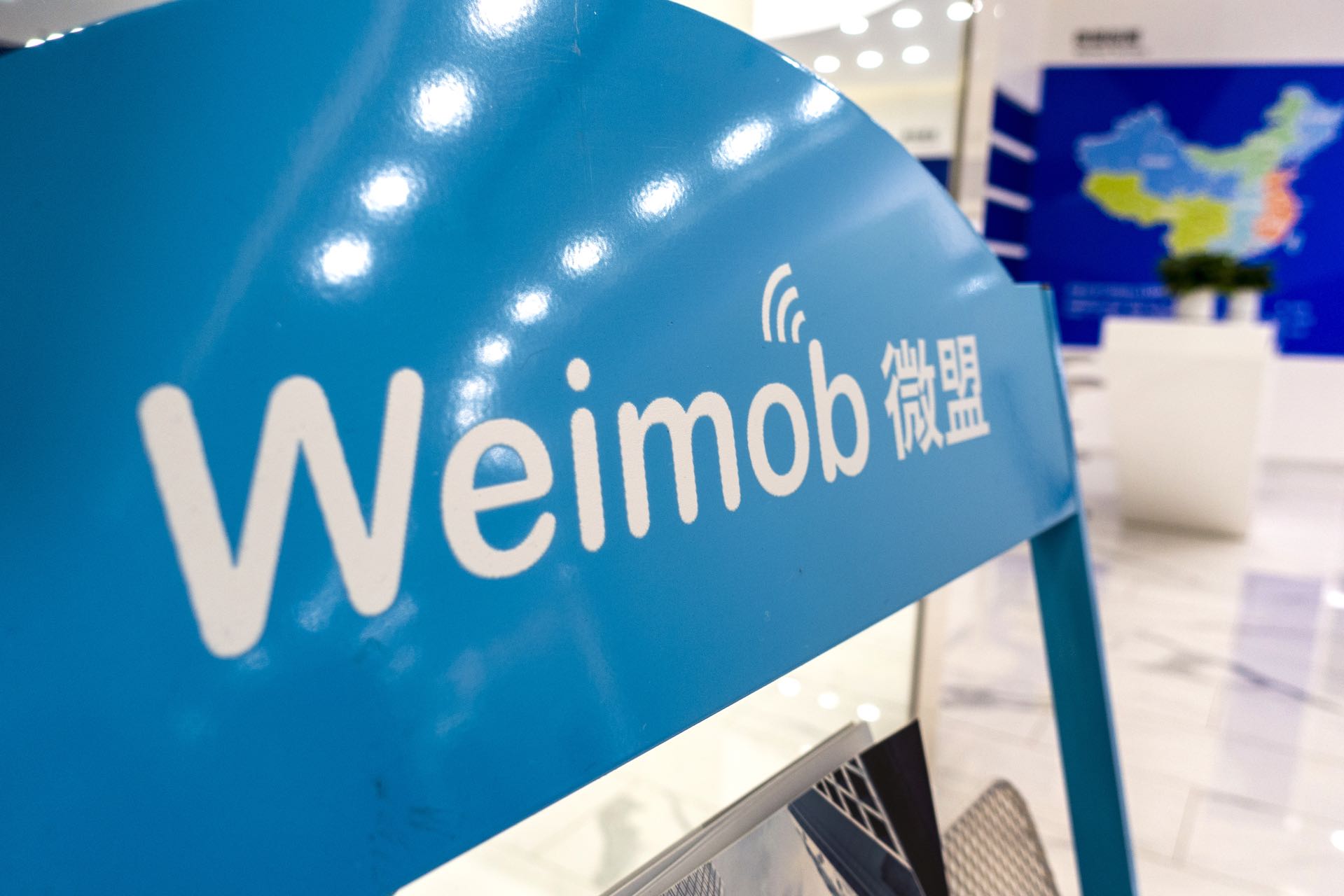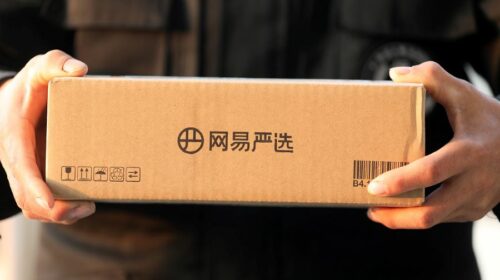Weimob to Raise $205 Million in Campaign to Jumpstart Growth

The provider of e-commerce software tools is the latest Hong Kong-listed company selling new shares to seize on strong market sentiment towards Chinese stocks
Key Takeaways:
- Weimob plans to raise HK$1.6 billion by issuing new shares, and will used the funds on a series of growth initiatives aimed at jumpstarting its business
- Management expects the company to break even in the second half of this year, with revenue growing 20% to 30% for all of 2023
By Trevor Mo
A desire to seize on positive market sentiment looks like the driving factor behind e-commerce services provider Weimob Inc.’s (2013.HK) announcement of a large fundraising plan through a new share issue last Friday.
But below that appearance, a strong desire to return to the heady growth of earlier days could be the bigger motivator behind the software as a service (SaaS) provider’s latest move. Whatever the longer-term motivation, Weimob, which provide tools for e-commerce merchants in Tencent’s (0700.HK) vast WeChat ecosystem, is almost certainly moving now to seize on bullishness that has pushed up Hong Kong’s Hang Seng Index by 8% in just the first five trading days of 2023.
The company said in a regulatory filing it plans to raise about HK$1.6 billion ($205 million) by selling 248 million new shares in private placements. It will sell the shares – equal to about 8.9% of its enlarged share capital – for HK$6.41 each, representing a discount of 8.7% to the closing price of HK$7.02 on the day of the Jan. 5 announcement.
The placement will make Weimob the latest in a series of Hong Kong-listed Chinese companies rushing to take advantage of bullish market sentiment to raise new funds. The Hang Seng Index’s rally actually dates back to the past two months, with the benchmark up more than 45% over that time on growing positive sentiment for a Chinese economic recovery following the country’s scrapping of its strict pandemic-control restrictions.
At least four companies have announced similar new share sales this month alone, including Jinxin Fertility (1951.HK), Hygeia Healthcare (6078.HK), MeiDong Auto (1268.hk) and Morimatsu International (2155.HK). Among them, medical services provider Jinxin Fertility was one of the largest with its announcement last Thursday of plans to raise HK$1.2 billion.
Despite the discounted share price, Weimob’s announcement got a warm reception from investors, who bid up the company’s stock by 10.77% in the next trading day. But investors have been more mixed on the company since its February 2021 IPO. Weimob briefly became an investor darling after the listing, soaring to more than HK$30 at its peak – more than 10 times its HK$2.80 IPO price. The stock has steadily declined from there, though its latest close of HK$7.30 is still more than twice the IPO price.
The company’s status as a strong China e-commerce play once attracted many big-name investors, including BlackRock, Morgan Stanley and Goldman Sachs. But most of those have sold down their stakes over the last year, and the latest disclosures show that only JPMorgan is still a major shareholder.
After the latest rally, Weimob trades at a relatively strong price-to-sales (P/S) ratio of 5.76, reflecting returning investor confidence. By comparison, its two major domestic peers – China Youzan (8083.HK) and Baozun (BZUN.US; 9991.HK) – trade at much lower P/S multiples of 2.27 times and 0.32 times, respectively.
Road to recovery
The HK$1.6 billion Weimob is raising will help to fund a series of initiatives aimed at jumpstarting the company’s sluggish growth that turned off the big-name investors. It said it will use the money for “improving (the company’s) comprehensive research and development capabilities, upgrading the marketing system, supplementing working capital and general corporate purposes,” according to the Friday filing.
Weimob has reported stagnant revenues and widening losses since at least 2020, even as e-commerce was one of the few sectors to benefit from China’s strict pandemic controls. Its revenue dropped 6.2% to 899 million yuan in the first half of last year, while its net loss grew by 17.6% to 658 million yuan, according to its latest financial results released in August.
The widening loss came after Weimob ramped up spending in a number of areas, including 54.4% and 75.2% year-on-year increases for R&D and general and administrative expenses, respectively.
Weimob’s management has repeatedly emphasized that its sluggish sales are temporary, saying in its 2022 first-half report that it expected its business to fully recover in the second half of the year. Over the longer term, it said it expects to achieve breakeven in the second half of this year, with revenue growing in the 20-30% range for all of 2023.
To jumpstart its growth, the company said it will continue implementing three major strategies of moving up-market, boosting its ecosystem and becoming more global.
The first strategy stresses channeling more resources to target larger key customers like big-name retail brands, which tend to have bigger budgets for IT spending. The company is aiming to boost the share of revenue from such customers to nearly half of its total in 2023 and 70% by 2025.
The second strategy revolves around the Weimob’s WOS operating system launched last March, which gives users access to Weimob’s own applications as well as ones created by third-party developers. As part of a strategy to diversify more from Tencent, Weimob is also aiming to cross-sell its e-commerce and marketing tools on other platforms besides WeChat, including leading short video apps Douyin and Kuaishou (1024.HK), as well as Ant Group’s Alipay and search leader Baidu (BIDU.US; 9888.HK).
Last but not least, Weimob’s globalization strategy will offer targeted marketing services to China-based merchants wishing to expand into international markets. For that initiative, the company has formed partnerships with most mainstream global platform operators including Google (GOOG.US), Facebook (FB.US) and TikTok. In the first half of 2022, its cross-border SaaS ShopExpress platform, which was launched in 2021, had over 350 product functions, covering website building, driving traffic with social media and customer acquisition.
As the company implements those strategies, its business is showing early signs of improvement. In a November business update, Weimob said its SaaS orders grew 30% year-on-year in the third quarter. Its gross advertisement billings fell 5% during that period to 2.87 billion yuan, though the figure was up 30% on a sequential basis. And for at least one month during the quarter, September, gross advertisement billings rose year-on-year for the first time in 2022, signaling that business may be on a road to recovery.
At the end of the day, the company will need to not only talk about its new strategies, but show it can implement them effectively while keeping costs under control and returning to profitability. But at least the fresh HK$1.6 billion in new capital will indeed give Weimob more flexibility to execute its turnaround plan.
To subscribe to Bamboo Works free weekly newsletter, click here
This story has been corrected to show the currency of the new fundraising is Hong Kong dollars





